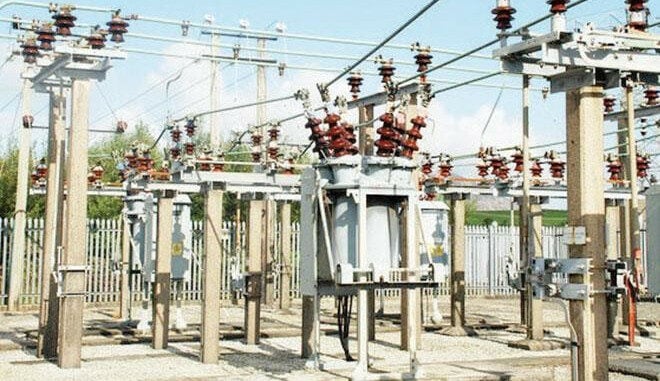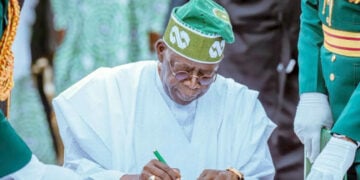The federal government has begun an accelerated plan to clear the outstanding N4 trillion electricity debt and end the long-standing power subsidy amid a constrained fiscal environment triggered by significant revenue shortfalls.
This move, announced by the Minister of Finance and Coordinating Minister of the Economy, Wale Edun, underscores the government’s commitment to fiscal discipline and prioritisation of critical sectors amid tough budget choices.
Edun, who made the remarks in Abuja at a media briefing, laid bare the government’s fiscal challenges, stating that the steep revenue shortfall was primarily due to crude oil price decline.
Removing the subsidy would see the average tariff for all electricity consumers in the country rise from N66 per kilowatt-hour (kWh) to N209 kWh, the current Band A tariff.
As of June 2025, the federal government’s electricity subsidy obligation had reached N1.186 trillion, which is yet to be cash-backed.
Despite these payments, the power purchase agreements and subsidies have created a fiscal squeeze on the government, which is forced to partially cover the cost of power produced but not fully paid for by consumers. The subsidy and debt burden also stifle new investments and improvements in the sector.
In April 2024, the federal government raised the tariff for Band A consumers to N225 kWh, much higher than for other bands, which hover around N66 per kWh. Currently at N209/kWh, the Band A tariff increase, which only covers 15 per cent of electricity consumers, has done little.
Nigeria’s electricity value chain is currently grappling with a severe liquidity crisis that threatens the entire power sector’s sustainability, largely fueled by a massive N4 trillion debt owed to generating companies (GenCos). This outstanding debt has put enormous fiscal pressure on the government and risks a collapse of the electricity system if urgent actions are not taken.
The high level of subsidy required to bridge the gap between actual electricity costs and consumer tariffs further strains government finances. In 2025 alone, the federal government may spend approximately N2.3 trillion on electricity subsidy, mainly to shield low-income consumers from tariff shocks.
Pay-as-you go model
Edun said the government is working on a plan to introduce a pay-as-you-go payment model for electricity consumption as part of efforts to end government-sponsored subsidies for the sector.
The minister said the transition to a pay-as-you-go approach would take effect after the government successfully cleared the outstanding N4trn liability owed to the various investors in the sector. The N4trn energy sector liability is a resolution of the administration to deal with past liabilities and transition the sector to a fully deregulated industry.
“Going forward, that programme has been built as well, looking at ways of making sure that collections increase, making sure that there’s more of a pay-as-you-go approach that doesn’t leave government with a bill to pay,” Mr Edun stated at a media conference.
The aim is to avoid the type of power purchase agreements that have left government with a huge burden to pay.
“The idea is to replace them with somebody that invests in power and sells it. So you don’t invest in power generation in order to hang it on the government to pay you no matter what happens at the other end,” he said.
Meanwhile, according to ministry officials, actual revenue collections in the first half of the fiscal year fell short of projections due to underperformance in oil earnings and sluggish non-oil revenue growth. Crude oil production has remained below budget benchmarks, while global price fluctuations and theft in the Niger Delta have further reduced expected inflows.
Average production in the first half of 2025 was 1.67 million barrels per day, according to the minister.
“As you can see from the figures I’ve given, there’s been a revenue shortfall, and in response to that, we have prioritised spending on sectors that directly impact citizens and support our growth ambitions. In the power sector, there has been no national grid collapse in 2025,” Mr Edun stated yesterday at a press conference to provide an update on the economy.
On the World Bank and African Development Bank-sponsored Mission 300 initiative, the ministry simply said the government was currently collaborating with the private sector for investment.
“We are leading the way. We are already on IFC. And for the private sector, for young entrepreneurs, this is utilities,” he said. The initiative is to provide electricity to 300 million people in Africa by 2030.
Also, the minister said the federal government has significantly increased revenue allocation to states of the federation amounting to over N7 trillion, especially since the beginning of the administration.
Edun said the payments are part of past deductions to the federation account, funds which are legitimately owed to the sub-national levels of government which he said are being made on a regular basis.
“And since the first half of 2023, the combined fiscal balance of the states has grown from 1.8 percent of GDP to 3.1 percent. That’s from N2.8 trillion to over N7 trillion, N7.1 trillion Naira exactly, which is a surplus,” he said.
The minister said the states have been provided funding that has now allowed them to be in surplus. He said the payments now enables the states to invest in health, education and infrastructure development. “It must be said that the increase in spending of the states has in fact mainly gone to capital expenditure. And so that’s the basis of the type of spending and growth that we are looking for.
He disclosed that N2 trillion has been paid to two contractors to settle outstanding capital budget obligations in the second quarter of this year. And that was from last year. He said the government has no pending obligations that are not being processed and financed through the platform.
Currently, Nigeria’s share of investment, holding investment as a share of GDP is low at 5 percent which Edun said is largely due to inefficiency.
“So we’re therefore urgently reviewing and optimising our finances, including enhancing spending efficiency,” he said, pointing to President Tinubu’s recent directive to the various revenue generating agencies of the government to review the percentages of their revenue deduction and retention.
He also claimed that there have been “no debits to ways and means since early in this administration.”
He, however, failed to provide the financial value of the figure.
The minister disclosed that gross revenues are of 37.4 percent government revenues in the first half of 2025 compared to 2024. Following GDP rebasing, Nigeria now has a ratio of debt to GDP of less than 40 per cent (38.8 per cent) down from 52.1 per cent, he said.
“Our fiscal stability targets include 3.5 per cent of GDP as a fiscal deficit, a revenue to GDP ratio of less than 50 per cent if we can achieve it, and debt to GDP of 60 per cent, and tax, the all-important increase in government revenue to 18 per cent of GDP tax revenue,” the minister said.
Experts speak on power subsidy removal
The director/CEO of Centre for the Promotion of Private Enterprise (CPPE), Dr. Muda Yusuf, has pointed out that there are both positive and negative aspects to consider.
On the positive side, Yusuf said the policy is likely to ensure a more consistent and reliable electrical supply.
“This improvement means that SMEs will become less dependent on diesel and petrol, similar to the stability observed since the withdrawal of the petrol subsidy, which has notably reduced fuel scarcity,” he stated.
He however said saw important to acknowledge the challenges as well.
“The cost of electricity may rise significantly. Even with the current Band A tariff, some argue it might not fully reflect the actual costs. If the subsidy is completely removed, the Local Supply Tariff could increase, presenting additional challenges for SMEs.
“While this policy could bring about substantial
benefits in terms of reliable power supply, it also poses challenges that SMEs will need to navigate.
Meanwhile, the federal government has highlighted the need to fully remove electricity subsidy after it has cleared the N4trn debt owed the power sector.
Phased subsidy removal
SME stakeholders have stated that while the government plans to clear sector debts, subsidy removal must be managed carefully and phased alongside measures that protect vulnerable groups, informal sector and organised private sector groups in the country.
Speaking on the impact of this development to individuals, businesses and SMEs in the country, National President of Association of Small Business Owners of Nigeria ASBON Dr. Femi Egbesola, said the planned full removal of electricity subsidy will have far-reaching implications for both individuals and businesses, especially SMEs that already operate under extremely high-cost conditions.
He explained that energy is a critical production input, and any further increase in power tariffs will directly raise operating expenses for small businesses, many of which are already burdened by multiple taxes, poor infrastructure, and limited access to affordable credit.
He noted that in an economy where most SMEs run on thin margins, such additional costs could force some to scale down, lay off workers, or shut down entirely.
For households, higher electricity costs will reduce disposable income, affecting consumer purchasing power. When people spend more on basic utilities, they spend less on goods and services provided by SMEs, which in turn reduces sales and profitability for small businesses.
This, he said, creates a ripple effect on businesses as they struggle to survive, as more jobs are threatened, and economic activity slows down further.
“We strongly advocate for targeted relief and support and for SMEs—to cushion the impact. Without such buffers, the move, though fiscally sound on paper, could unintentionally stifle entrepreneurship, worsen unemployment, and erode the competitiveness of Nigerian businesses,” he said.
Subsidy removal will cause inflation
For his part, the Chief Economist at SPM Professionals, Dr. Paul Alaje, said: “The first thing we’ll see if electricity subsidy is removed is that energy prices will go up. When that happens, the costs of running businesses will go up; in real sense, inflation will rise.
“Those who have the capacity to produce, if those goods are a necessity, will create wealth. But whether the people will be able to pay for those goods is another conversation all together, which is what I doubt very much because of the reality of what we have today. So, staying off subsidies, the government has mentioned already that band A is not subsidised. So if other bands, especially those in rural areas will have to pay for what they use, it will eventually affect their economic life and living standard. We all understand how important electricity is; you cannot have a developed nation in this 21st Century, more so in 2025, if we are unable to optimise electricity.”
“The question is what are the options? One is to look at alternative source of energy. That is not reachable for the poor. To put that into perspective, the World Bank claims that 75 percent of Nigerians in rural areas are poor, and over 40 percent are poor in urban centres. As if that were not enough, a recent report Oxfam revealed that 90 percent of Nigerians are poor.
So, how do we increase the cost of electricity? Although the government has been paying, how do we make the majority who are poor pay high electricity cost. It calls for some concerns. I think those in authority should reconsider and look at the reality of today so that this does not damage the gain that we are having currently with economic stability.”
We’ve got the edge. Get real-time reports, breaking scoops, and exclusive angles delivered straight to your phone. Don’t settle for stale news. Join LEADERSHIP NEWS on WhatsApp for 24/7 updates →
Join Our WhatsApp Channel










